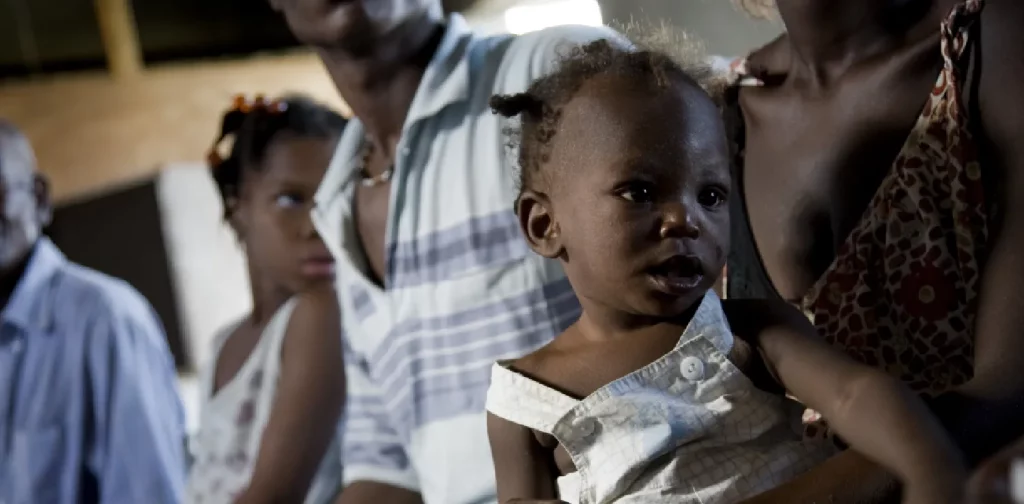Haiti’s Political Turmoil Escalates into Humanitarian Crisis

Photo by Marco Dormino on Flickr
The fundamental human rights to safety and access to basic needs are essential. In Haiti, the political turmoil that has escalated into a violent multidimensional crisis has pushed the country to the brink of a humanitarian catastrophe. What does the recent condition of the country mean to the humanitarian landscape in Haiti?
Humanitarian Crisis in Haiti
Since the assassination of its President in 2021, Haiti has been in political turmoil. The situation has escalated to the point where the government is not functioning properly, and basic institutions, such as the justice system and parliament, have ceased to operate.
Overall, the state’s ability to provide essential services to civilians has been steadily declining. Apart from economic stagnation, the increase in violence has harmed civilians and led to a worsening trend in Haiti’s humanitarian security. In 2024, around 5.5 million Haitian people – nearly half of the population – require humanitarian assistance.
The crisis has deeply impacted the lives of Haitians, with children and women being the most affected. According to a 2023 UNICEF Report, 90% of Haitians live below the poverty line. They have to sell their goods and belongings to survive.
Additionally, internal displacement due to the surge of violence has risen to over 360,000 by March 2024, up from 200,000 previously. Cases of kidnappings and sexual violence also further worsen the crisis in Haiti, with over 3,000 kidnappings and 4,000 deaths reported in 2023.
Despite urgency, Haiti’s humanitarian response plan for 2023 only received 34% of the required funding. Then, the UN’s 2024 humanitarian appeal for $674 million has only been funded at a mere 3.2%.
These findings highlight the ongoing issue of insufficient funding and humanitarian support to guarantee the security of civilians, particularly marginalized groups, who are disproportionately impacted during these challenging times.
The Threat of Famine
Furthermore, Haiti is facing the critical threat of severe hunger. Attempts to stockpile food in the capital, Port-au-Prince, are restricted due to the city’s besieged condition–meaning nobody can enter or exit the area. The situation forces them to eat less and consume lower-quality food, resulting in over 200,000 children at risk of acute malnutrition.
“Haiti is one of the world’s most severe food crises. Food security has been fragile in Haiti since the COVID-19 pandemic outbreak in 2020, but today, 1.4 million people are a step away from famine” said Jean-Martin Bauer, the United Nations World Food Programme (UNWFP) country director for Haiti. Additionally, he described the situation in Haiti as being “on the brink of devastating hunger”, with the levels in Port-au-Prince resembling those seen in war zones.
Invaluable Cost of Crisis
Human rights are always at risk during crises, especially in underdeveloped regions where access to necessities is already limited even under normal circumstances. Every devastating event carries consequences, and often, those not directly involved are disproportionately affected. In the longer term, the environmental consequences of conflicts may remain.
Ensuring civilian safety and access to essentials like food, water, and shelter is vital to lessen the severe impacts of crises on affected individuals. Therefore, urgent humanitarian aid and internal peace-building efforts are necessary to achieve lasting peace and ideal conditions for progressing to development and better life for everyone and the planet.
Editor: Nazalea Kusuma

Co-create positive impact for people and the planet.
Amidst today’s increasingly complex global challenges, equipping yourself, team, and communities with interdisciplinary and cross-sectoral insights on sustainability-related issues and sustainable development is no longer optional — it is a strategic necessity to stay ahead and stay relevant.


 Reframing Governance in the Era of Water Bankruptcy
Reframing Governance in the Era of Water Bankruptcy  Strengthening Resilience amid Growing Dependence on Space Infrastructure
Strengthening Resilience amid Growing Dependence on Space Infrastructure  Indian Gig Workers Push Back Against 10-Minute Delivery Service Strain
Indian Gig Workers Push Back Against 10-Minute Delivery Service Strain  Call for Governance: Grassroots Initiatives Look to Scale Efforts to Conserve Depleting Groundwater
Call for Governance: Grassroots Initiatives Look to Scale Efforts to Conserve Depleting Groundwater  Integrating Environment, Climate Change, and Sustainability Issues into Education Systems
Integrating Environment, Climate Change, and Sustainability Issues into Education Systems  Finally Enforced: Understanding the UN High Seas Treaty
Finally Enforced: Understanding the UN High Seas Treaty